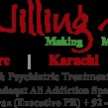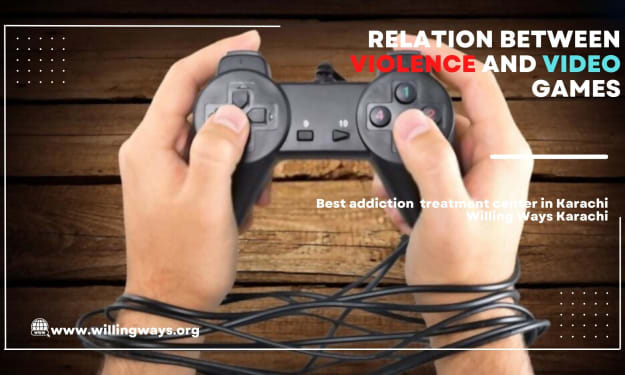Types of Eating Disorders
Eating disorders are rapidly spreading into the people, you should be aware types of eating disorders

Eating disorders are not generally not considered an addiction problem at the best addiction treatment center in Pakistan experts are telling us the feedback of the patients who are facing this problem and Understanding the Addiction Definition by visiting the addiction treatment center is to be aware of the dangerous effects of addiction. Regularly combined with emotional wellness, usually connected with confidence issues, dietary problems can show themselves differently, from a no, Nexia, bulimia, and gorging to over-practicing. People suffering from eating disorders struggle with dialysis with health, self-image, and overall survival. Please read here about various kinds of eating disorders, how they start and the treatment available for recovery.
What is an Eating Disorder?
Eating disorders have been a concern of society for decades, with millions of people living dangerous lives or losing their lives to this disease. Eating disorders come in many forms, affecting a wide variety of people. Eating disorders are generally traceable t self-esteem or self-image issues in most people. It is this low self-esteem that drives eating disorders in people of all genders and ages. While eating disorders are more common among young women, this disease is just as solid and devastating in older people and men as anyone can suffer from low self-esteem. There is no absolute determination as to which kind of eating disorder any individual will suffer from, as all the various eating disorders are equally dangerous and life-threatening. Still, knowing the different types of eating disorders and their signs and symptoms is essential.
Anorexia
Anorexia (Anorexia Nervosa) is an illness suffered by those with low self-esteem and an overwhelming desire to gain unhealthy control over life. Sufferers of anorexia often struggle with external and internal challenges, such as depression, anxiety, stress and unhappiness. Research has made a connection between genetics and anorexia, with external environmental factors being the trigger.
Some signs of anorexia nervosa are hyer-sensitivity to weight and severe distortions in body image. Persons suffering from anorexia can display obsessive exercising, fat gram and calorie counting, restriction of food, and administration of diet pills and laxatives.
Bulimia
Bulimia (Bulimia Nervosa) is also rooted in low self-esteem and is an illness that consists of binging and purging. Generally, people living with bulimia will overeat in a relatively short period, usually eating enough for two or more people, then purifying themselves of the food consumed, often through vomiting. Binging behaviour is usuatypicallyeans by which sufferers will take out frustrations and anger or avoid them altogether purging is how they will punish themselves for behaviour that they believe is their fault. Genetic predisposition has been linked to bulimia, with environmental factors triggering the disease.
Some signs of bulimia are frequent purging episodes followed by feelings of guilt and shame, the misuse of laxatives and diuretics, and over-exercising.
Compulsive Eating
Urgent Eating (Gorging) is established in similar low-confidence issues. It is the nearest dietary problem to enslavement, as food is utilised as a getaway or a filler for a void throughout everyday life. People suffering from compulsive eating are generally overweight and aware of their abnormal and unhealthy eating habits. Still, they fail to find any comfort in their condition because of the negative stereotypes placed on overweight individuals. Often compulsive eaters will feel guilty and experience emotions of not being good enough. Unlike bulimia, compulsive eaters binge on food when they experience periods of stress, pressure, unhappiness, and anxiety to ease the pain of their emotions. Signs of compulsive eating are frequent unhealthy and abnormal eating habits, especially in times of high stress and unhappiness.
Over-Exercise
Over-exercise (Compulsive exercise) is classified as an eating disorder even though activity is generally considered very healthy. Moderate exercise is healthy, but sufficient food and energy are required for training to have a positive effect. In compulsive exercising, that element is not present, making the exercise more damaging to the individual than helpful. Compulsive exercisers will exercise beyond what is considered safe and hold a perspective of not being able to eat if they haven't exercised or if they don't know they will be able to exercise. The exercise activity for compulsive exercisers is burning calories and fat from a binge or consuming anything else.
Some indications of compulsive exercising are exercising by any means possible, including missing school and work or hiding in the bathroom or bedroom to exercise. Compulsive exercisers will use excuses of not being able to exercise and why they cannot eat at any given time.
Having information about the various kinds of eating disorders, identifying a problem can become much more accessible. Treating that problem also becomes less daunting when you have vital information. In searching for treatment for eating disorders, knowing what kind of eating disorder needs to be treated is important. Generally, rehab centers for eating disorders will be focused not only on the disease but place a heavy focus on building self-esteem and strengthening confidence while working to develop a more realistic idea of healthy body weight and what activities are and are not fit for maintaining a healthy body.
If you have concerns about your eating disorder or that of someone close to you, please complete our free confidential online assessment and we will get right back to you to discuss your situation and some options for treatment. We are here to help and if there is anything we can assist you with, please don't hesitate to get the help you need by contacting us or calling us.
About the Creator
Willing Ways
Willing Ways is the Best addiction treatment center in Pakistan. We are the pioneer in drugs & alcohol treatment centers with outstanding services and a history of 43 years. We deliver quality writing that is beneficial for you.






Comments
There are no comments for this story
Be the first to respond and start the conversation.